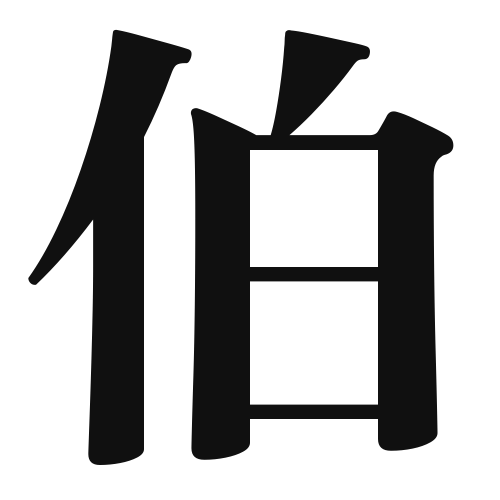1. Overview of Meaning
The kanji “伯” (haku) generally means “elder brother” or “nobleman.” It is often used to denote someone of higher status or rank, particularly in historical contexts.
2. Formation and Radical
Formation of the Kanji: The kanji “伯” is a phonetic-ideographic character (形声文字). It combines the radical for “elder” (the left part) with a phonetic component that suggests its pronunciation.
Radical: The radical for “伯” is “伯” itself, which relates to the concept of being an elder or a leader.
3. Examples of Usage
Common Words and Phrases: Some common words that include “伯” are “伯父” (ofu – uncle) and “伯母” (oba – aunt).
Example Sentences in Daily Conversation:
- 私の伯父はとても優しい人です。 (My uncle is a very kind person.)
- 伯母は料理が得意です。 (My aunt is good at cooking.)
4. Synonyms and Antonyms
Similar Kanji: A similar kanji is “兄” (ani), which means “older brother.” While both refer to elder male figures, “伯” often implies a higher social status.
Opposite Kanji: The kanji “弟” (otōto) means “younger brother,” representing the opposite relationship in terms of age and status.
5. Cultural and Historical Background
Relation to Japanese Culture: In Japanese culture, the term “伯” is often associated with family hierarchy and respect for elders. It reflects the importance of familial relationships in traditional Japanese society.
Proverbs and Idioms: One common saying is “伯父の言うことは聞け” (Listen to what your uncle says), emphasizing the value of wisdom from older family members.
